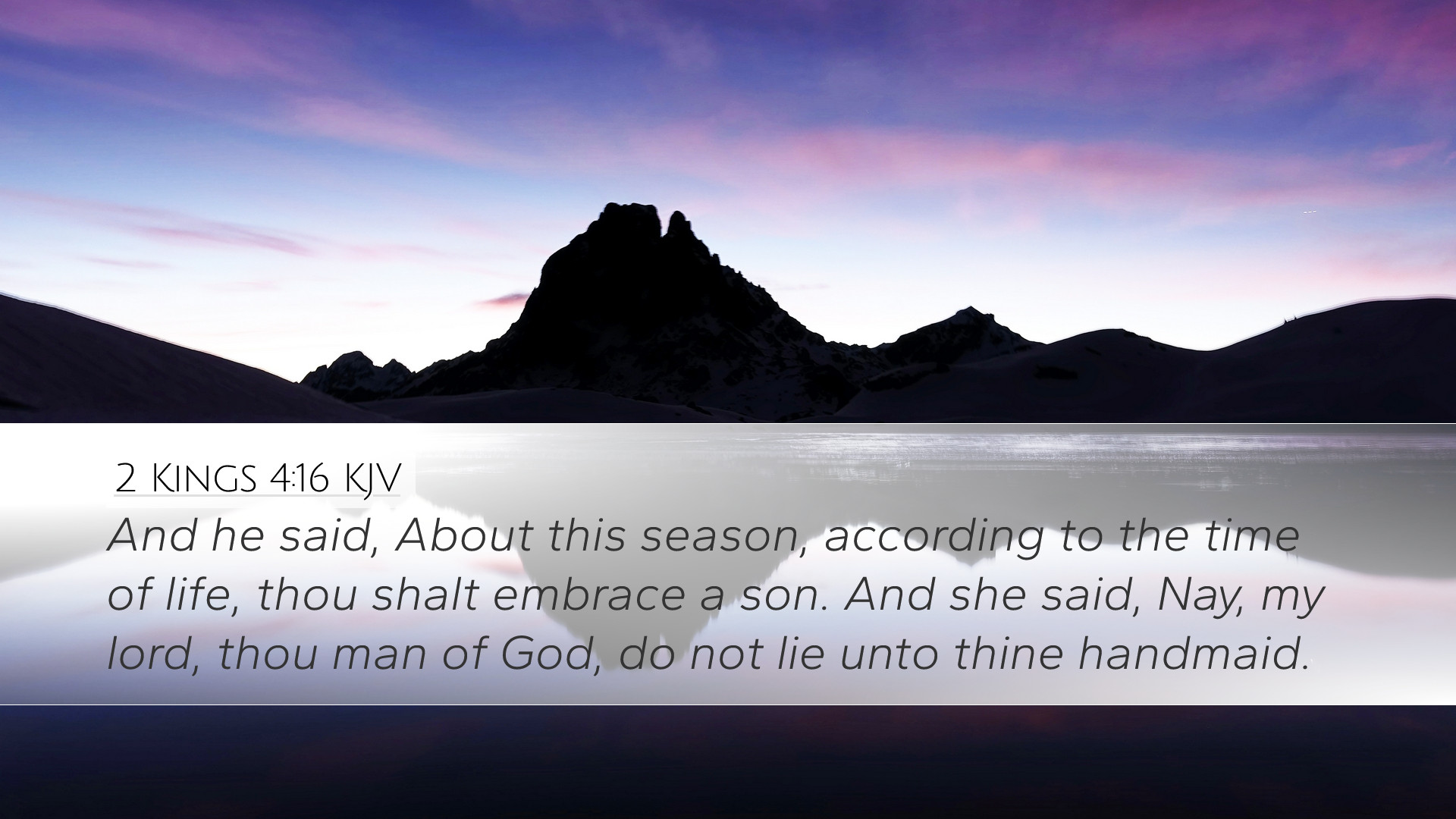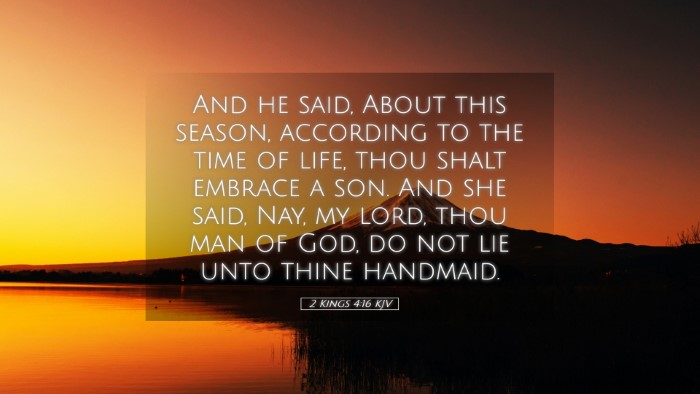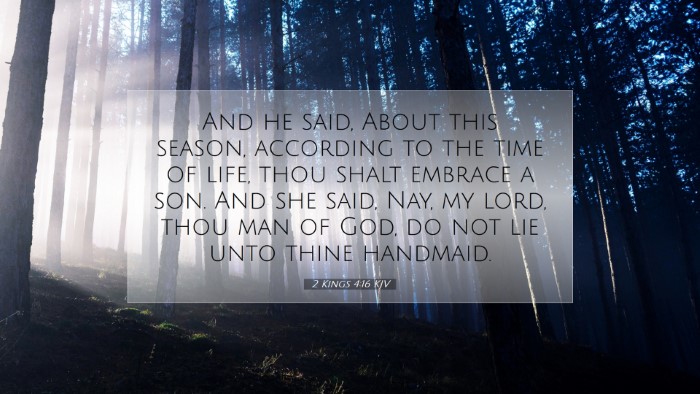Commentary on 2 Kings 4:16
Verse: "And he said, About this season, according to the time of life, thou shalt embrace a son. And she said, Nay, my lord, thou man of God, do not lie unto thine handmaid." (2 Kings 4:16, KJV)
Introduction
The narrative in 2 Kings 4:16 reveals the profound relationship between Elisha, the prophet, and the Shunammite woman, who demonstrates great faith and hospitality. This verse marks a significant moment in the story, encapsulating themes of divine promise, doubt, and the transformative power of faith in God’s prophetic word.
Contextual Background
This event occurs within a broader context of Elisha's ministry, where miracles and acts of kindness are predominant. The Shunammite woman, previously noted for her kindness to Elisha, receives a prophetic word about a child, which ushers in themes of hope and divine intervention.
Verse Analysis and Interpretation
1. The Prophetic Promise
Elisha’s declaration, “thou shalt embrace a son,” encapsulates a miracle that is both physical and metaphorical. The child symbolizes not just a future generation but also hope and divine favor.
2. The Reaction of the Shunammite Woman
Her response, “Nay, my lord,” reflects a sense of disbelief or perhaps caution, stemming from her prior disappointment regarding childbearing. This illustrates the struggle of faith against personal experience and the nature of hope amidst barrenness.
3. The Theological Implications
This verse provokes deep theological reflection regarding God’s promises. Her hesitance highlights the human condition of doubt, even in the face of a divine assurance. The verse challenges believers to trust in God's timing and faithfulness, especially where human limitations exist.
Insights from Public Domain Commentaries
1. Matthew Henry’s Commentary
Matthew Henry emphasizes the compassion and warmth shown by Elisha towards the Shunammite woman, noting that God often rewards acts of kindness and faithfulness. He also reflects on how God’s promises often come in surprising ways.
2. Albert Barnes’ Notes
Barnes points out the miraculous nature of the promise and the immediate reassurance provided to the Shunammite woman. He drives home the point that God’s words to us may sometimes exceed our expectations, addressing the depths of our needs.
3. Adam Clarke’s Commentary
Clarke discusses the cultural background of the Shunammite woman’s disbelief and emphasizes the societal importance of children. He advocates understanding the emotional weight behind her response, suggesting that the promise inferred a radical change in her circumstances.
Thematic Reflections
The passages raise several themes of significance to pastors, theologians, and scholars:
- Divine Intervention: The assured promise of a son illustrates God’s power to intervene in human affairs.
- Faith in the Face of Doubt: The woman’s doubts resonate with many believers today who struggle with faith against life’s hardships.
- Hope and Expectation: Her story is a reminder that God’s promises instill hope, even when they seem impossible.
- Human Response to Divine Promise: This verse reflects how humanity often responds to divine revelation, with a mix of gratitude and skepticism.
Pastoral Applications
For pastors, this verse serves as a call to foster environments where believers can embrace God’s promises, even amidst their doubts. Preaching this passage offers opportunities to delve into the complexities of faith, expectant waiting, and God’s timing. It also highlights the importance of community support, much like the Shunammite woman’s relationship with Elisha, as a means to bolster faith in times of uncertainty.
Conclusion
2 Kings 4:16 not only reveals a promise but invites deeper reflections on the nature of faith. The Shunammite woman’s reaction encourages readers to understand their own experiences with doubt and assurance. As a rich narrative filled with theological significance, it continues to inspire believers to trust in God’s faithfulness—despite their circumstances.


